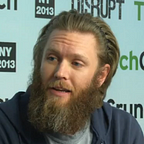Privacy for The Slaves
Do you want rights or do you want control? Do you want privacy rights or do you want ownership? Do you want their legal terms telling you what they are going to do with “your” data or do you want to choose what to do with YOUR data? Privacy policies let you know that the data is not really yours because if it were, you would be providing them with the terms under which they are allowed to access or expose your data. The problem is not that they are making billions of dollars from the data they semantically stole and continue to amass. The problem is that you are not aware of the value of your data when controlled from one central authority. They are taking your data, learning from it, profiting off of it, and limiting its potential. The have enslaved your data self. The solution is understanding; the knowledge is free and the power is unlimited. People need to understand the value of their data. Owners take control of their data. Privacy for The Slaves.
Slave liberator, Edward Snowden, is known for saying that the worst thing that can happen as the result of him exposing the NSA, is nothing. He feared that nothing would change because no one either would be able to do anything with the information, or that no one would care enough to do something about it. Snowden framed this as a privacy issue which was the single biggest mistake he could have made. Ownership should not be exchanged for privacy; retain ownership and dictate the privacy of your data while controlling your data and making it work for you. Not only does your data have a literal exchangeable value, but it is also ripe with potential; from exposing new global trends to identifying personal points of improvement. The data is the value of the creator and to humanity. Privacy policies are created by thieves. It is only happening because it is “legal”.
This is the beginning of an era of sensors recently dubbed the Internet of Things (IoT). IoT is, simply put, a bunch of sensors connected to the cloud. If the device is connected, it can send and receive data. The excitement of IoT comes into play when these devices, or sensors, talk to each other. When the state of one device can dictate the state of another device, forms of artificial intelligence are able to evolve. Artificial intelligence can only grow as fast as the quality and quantity of the sensor data available. Anything holding back the flow of data impedes the potential for agile innovation and should be removed from the system as quickly as possible. Nearly every single company restricts access to your (really their) data in an attempt to protect their interests in your data. Closed systems fail.
The hype of IoT is not being met as soon as expected because corporations first trick you into giving up your data. They then protect it so that it is not easily accessible from other services. The companies seek to control your data through ownership. In exchange for your data, the company maintains the data for “free”. Obviously their intention is to monetize the data in one form or another; there are no corporations doing something for nothing. Many times, corporations are not sure how they will monetize the data; they just know it has value and will collect it as quickly as you can upload it. Their hope is something can be mined from it, giving insight into general human behavior or your specific behaviors. Your data is easily bought, sold and traded without regard for the person. The buying and selling of a person’s data is a literal form of slavery because it robs the person of their full data potential.
When you let someone else control your data, you become their slave. They know what you did, what you are doing and what you intend to do. They are able to use this information to manipulate your future decisions. There are considerable dangers involved in expecting corporations to responsibility use your data ethically. When you get a privacy policy, they are telling you to trust them to do the right thing. When you own your data, you control your data, and doing the right thing for you becomes an option. It becomes choice for everyone to decide individually.
Asking for your privacy is no different than a slave asking for a weekend of no work then claiming to be free when the request is granted. You don’t need privacy; you need to own your data. The next phase of technological innovation will not be seen until all your data can communicate freely.
Privacy for The Slaves — We are The People — Hacking Capitalism
